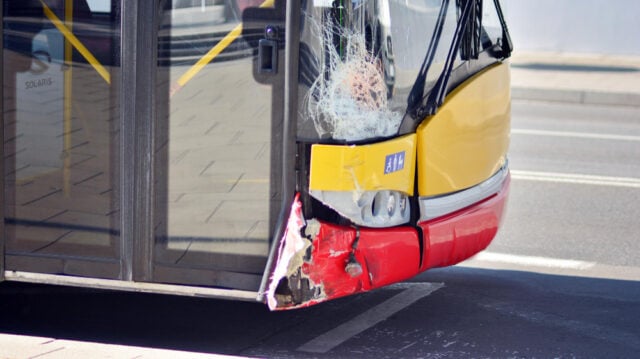
Understanding your rights after a Kansas City bus accident is pivotal, especially when facing the complexity of legal claims. You’ll need to know how to gather evidence, determine liability, and navigate insurance claims to certify you receive fair compensation. With so much at stake, including potential economic and emotional damages, it is vital to approach this process strategically. So, how do you protect your interests and secure the compensation you deserve?
Identifying the Parties Involved in a Bus Accident
How does one begin to identify the parties involved in a bus accident? Start by gathering details from the scene. You’ll want to note the bus operator, other drivers, passengers, and any pedestrians. Don’t forget about the bus company, as they’re pivotal to the process. Take photos and videos if possible, capturing license plates, vehicle damage, and road conditions. Talk to witnesses and get their contact information; their accounts can clarify who was present. Check for any commercial vehicles involved, as these might indicate corporate responsibility. Look for law enforcement officers, as their reports will be indispensable. Finally, remember that each party’s role and presence contribute to building an exhaustive picture of the accident’s dynamics, aiding your claim process.
Determining Liability in Bus Accidents
Determining liability in bus accidents often requires a thorough examination of various factors and evidence. You need to ponder the roles of the bus driver, the bus company, and other drivers involved. Was the bus driver distracted or fatigued? Did the bus company neglect vehicle maintenance? Maybe another driver acted recklessly. Each scenario can shift liability. You should also contemplate road conditions and traffic signals. Were they properly maintained and functioning? These elements can influence who’s at fault. Eyewitness accounts and police reports can provide critical details about the accident’s circumstances. Understanding these factors helps you construct a clearer picture of what happened. Once you’ve identified responsible parties, you can pursue the appropriate legal action.
Collecting Evidence and Documentation
When building a strong legal case for a bus accident, collecting evidence and documentation is essential. Start by gathering photos of the accident scene, vehicle damage, and any visible injuries. Document weather conditions and road signage, as these details can support your claims. Talk to witnesses and collect their contact information for future testimonies. Obtain a copy of the police report, which provides an official account of the accident. Medical records are pivotal for proving the extent of your injuries and related expenses, so make sure you keep all hospital bills and treatment records. Don’t forget to record your own account of events, noting any pain or difficulties experienced. These steps will help bolster your case and guarantee you’re well-prepared.
Navigating Insurance Claims and Settlements
When you’re dealing with the aftermath of a bus accident, filing insurance claims is a vital step to confirm you’re covered. It’s important to carefully evaluate any settlement offers you receive, as they might not always reflect the full extent of your damages. Don’t hesitate to negotiate with insurers to secure a fair compensation that addresses your needs.
Filing Insurance Claims
Even though dealing with insurance claims can be formidable, understanding the process is crucial for a successful outcome. Start by notifying your insurance company promptly after the accident. Provide all necessary information, including the date, time, location, and details of the incident. Gather evidence like photos, witness statements, and police reports to support your claim. Be honest and accurate when describing the accident to avoid complications later.
Next, review your insurance policy to understand coverage limits and obligations. Don’t hesitate to ask your insurer for clarification on any confusing terms. Keep detailed records of all communications with the insurance company. Following these steps guarantees you’re prepared to file a thorough claim, improving your chances of a favorable settlement.
Evaluating Settlement Offers
Receiving a settlement offer from an insurance company can feel overwhelming, especially when traversing the aftermath of a bus accident. It’s vital to evaluate the offer carefully before making any decisions. Start by reviewing the details of the accident and your losses, including medical bills, lost wages, and any ongoing treatments. Compare the settlement offer to these actual costs to see if it adequately covers your needs. Remember, insurance companies often aim to settle quickly and for the least amount possible. Don’t rush your decision; take the time to consult with a legal professional to understand the full scope of your entitlements. A lawyer can help you determine if the offer is fair or if you should consider other options.
Negotiating With Insurers
After evaluating the settlement offer, the next step involves engaging with insurers directly to negotiate a fair outcome. You should be prepared with all necessary documentation, including medical records and accident reports, to support your claims. Don’t hesitate to ask questions about how they calculated their offer. Be clear about your needs and the compensation you expect, based on the evidence you’ve gathered.
It’s vital to remain calm and professional during discussions. Remember, insurers aim to minimize payouts, so your goal is to advocate for your rightful compensation. If negotiations stall, consider enlisting an attorney who specializes in bus accident claims. They can provide leverage and safeguard your interests. Stay persistent, and don’t rush into accepting an inadequate offer.
Understanding Compensation for Damages
When you’re involved in a Kansas City bus accident, understanding the types of damages you can claim is essential. You’ll need to know how to calculate the compensation amount accurately and guarantee you file your claim correctly. This knowledge can make a significant difference in the outcome of your legal process.
Types of Damages
In the aftermath of a bus accident, understanding the different types of damages you can claim is essential for securing fair compensation. You may be entitled to economic damages, which cover tangible losses like medical expenses, lost wages, and property damage. These are usually straightforward and easy to document. Non-economic damages compensate you for intangible losses such as pain and suffering, emotional distress, and loss of enjoyment of life. These can be more subjective but no less important. In some cases, punitive damages might be awarded to punish particularly reckless behavior and deter future misconduct. Knowing these categories helps you and your attorney build a detailed claim, ensuring you’re adequately compensated for the full scope of your losses.
Calculating Compensation Amounts
Understanding the types of damages is just the first step; the next challenge is calculating the compensation amounts precisely. You need to examine all the expenses and losses you’ve faced due to the accident. Start by listing your medical bills, rehabilitation costs, and any ongoing treatment expenses. Don’t forget to include lost wages if you couldn’t work. If the accident caused emotional distress or pain and suffering, factor in compensation for that too.
To ascertain accuracy, gather all related documents and receipts. Consulting with legal and financial experts can help you comprehend the potential value of your claim. They can provide insights into how similar cases were handled and what settlements were reached, guaranteeing you don’t undervalue your claim. Always aim for a thorough calculation.
Filing a Claim
Before diving into the process of filing a claim, it’s vital to grasp the intricacies of compensation for damages. When you’re involved in a Kansas City bus accident, you might recover compensation for medical expenses, lost wages, and emotional distress. Each element requires clear documentation and evidence. Medical records and bills are indispensable for proving the injury’s extent, while pay stubs or employer statements establish lost income.
Once you’ve gathered this evidence, notify the bus company or insurance provider promptly. Filing a claim involves completing necessary forms and providing all supporting documents. Keep communication clear and concise, addressing any requests from the insurer promptly. Consider consulting a legal expert to guarantee you’re accurately presenting your case, maximizing the potential compensation for your damages.
The Role of a Personal Injury Attorney
When you’re dealing with the aftermath of a bus accident in Kansas City, navigating the legal landscape can be overwhelming. That’s where a skilled attorney for bus accidents in Kansas City steps in. They understand the complexities of the legal system and can guide you every step of the way. Your attorney will work to gather evidence, interview witnesses, and build a solid case on your behalf. They’ll negotiate with insurance companies to guarantee you get the compensation you deserve, covering medical bills, lost wages, and more.
Moreover, they provide invaluable support, alleviating stress by handling legal paperwork and deadlines. With their expertise, you won’t face the challenging legal process alone. Hiring a personal injury attorney can make a significant difference in the outcome of your case.
Filing a Legal Claim in Kansas City
If you’ve been involved in a bus accident in Kansas City, filing a legal claim might initially seem formidable, but it’s an essential step in seeking justice and compensation. Start by gathering all relevant evidence, including photos, medical records, and witness statements. This documentation supports your case and strengthens your claim. Next, consult a personal injury attorney who specializes in bus accidents. They’ll guide you through the process, ensuring all paperwork is correctly filed and deadlines are met.
Don’t delay, as Kansas City has specific statutes of limitations that restrict the time you have to file. Act promptly to protect your rights. Your attorney will negotiate with insurance companies on your behalf, advocating for the compensation you deserve for injuries, lost wages, and other damages.
Disclaimer
The information contained in South Florida Reporter is for general information purposes only.
The South Florida Reporter assumes no responsibility for errors or omissions in the contents of the Service.
In no event shall the South Florida Reporter be liable for any special, direct, indirect, consequential, or incidental damages or any damages whatsoever, whether in an action of contract, negligence or other tort, arising out of or in connection with the use of the Service or the contents of the Service. The Company reserves the right to make additions, deletions, or modifications to the contents of the Service at any time without prior notice.
The Company does not warrant that the Service is free of viruses or other harmful components












